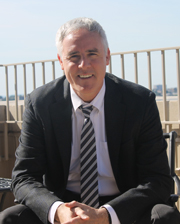
Dr. Peter T. Coleman holds a Ph.D. in Social-Organizational Psychology from Columbia University. He is Professor of Psychology and Education at Columbia University where he holds a joint-appointment at Teachers College and The Earth Institute and teaches courses in Conflict Resolution, Social Psychology, and Social Science Research. Dr. Coleman is Director of the Morton Deutsch International Center for Cooperation an [ ... ]
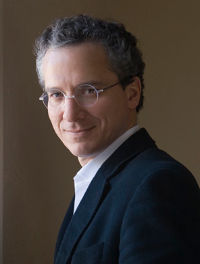
Scott Barrett is the Lenfest-Earth Institute Professor of Natural Resource Economics at SIPA and the Earth Institute. He was previously a professor at the Johns Hopkins University School of Advanced International Studies in Washington, DC, where he also directed the International Policy program. Before that, he was on the faculty of the London Business School. He has also been a visiting scholar at Yale. Barrett's r [ ... ]
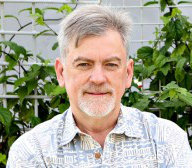
Glenn Denning joined Columbia University's Earth Institute in 2004 as Senior Research Scholar and Associate Director of the Tropical Agriculture and Environment Program. He helped establish the MDG Centre, East and Southern Africa in Nairobi, Kenya, and served as its director for five years. With more than 25 years of experience in international agricultural research and development, Denning provided leadership to the MDG [ ... ]
.jpg)
2011 Nobel Peace Laureate Leymah Gbowee is a Liberian peace activist, trained social worker and women’s rights advocate. She currently serves as Executive Director of the Women, Peace, and Security program at the Earth Institute at Columbia University and is the founder and current President of the Gbowee Peace Foundation Africa, the founding head of the Liberia Reconciliation Initiative, and the co-founder and form [ ... ]
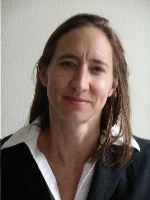
Jacqueline Klopp is an Associate Research Scholar at the Center for Sustainable Urban Development at Columbia University. Previously, she taught for many years at the School of International and Public Affairs at Columbia University where she remains affiliated. Her research focuses at the intersection of sustainable land use, democratization, violence, displacement and corruption. Klopp is the author of articles for Afr [ ... ]
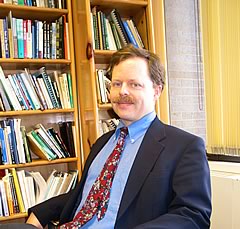
Marc Levy is deputy director of the Center for International Earth Science Information Network (CIESIN), a research and data center of the Earth Institute of Columbia University that utilizes scientific data and advanced information technology to advance understanding of how humans affect and manage the environment, and in turn, how environmental variability and change affect society. He also serves as an adjunct professo [ ... ]
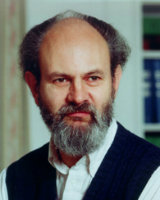
I have worked at Columbia since 1971, with a couple of years on leave in Washington working on nuclear arms control (in the U.S. Department of State), and four sabbaticals taken in New Zealand, in California (at the Lawrence Livermore National Laboratory), in New Mexico (Los Alamos National Laboratory), and as a Phi Beta Kappa lecturer (on eleven different U.S. campuses). Since the mid-1980s my work has focused on th [ ... ]
.jpg)
Professor Weber works at the intersection of psychology and economics. She is an expert on behavioral models of judgment and decision making under risk and uncertainty. Recently she has been investigating psychologically appropriate ways to measure and model individual and cultural differences in risk taking, specifically in risky financial situations and environmental decision making and policy. Weber is past pre [ ... ]
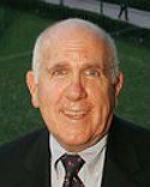
Elliott Sclar is the Director of CSUD and Professor of Urban Planning and International Affairs at Columbia University. He holds senior appointments in the Graduate School of Architecture, Planning, and Preservation and the School of International and Public Affairs and is an active participant in the work of the Earth Institute at Columbia University (EI). Sclar is a member of the Advisory Board of the Global Resea [ ... ]

André Corrêa d’Almeida, PhD, is a political economist and a designer of learning environments with several management and academic leading roles at Columbia University in the fields of international education programs, institutional design and sustainable development. As a trust-builder he strives to develop new collaborative approaches to address issues of coordinated action around [ ... ]
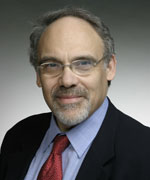
Dr. Irwin Redlener is a recognized national leader in disaster preparedness and the public health ramifications of terrorism and large-scale catastrophic events. He and his team have developed major programs to enhance public health and health systems readiness with respect to disasters. He has written and spoken widely on the response to Hurricane Katrina, U.S. readiness for pandemics and the concerns of children a [ ... ]
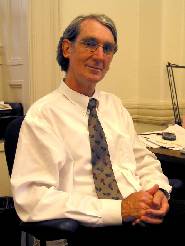
The face of the Earth is figured by continents and oceans whose present shape and positions are transients in the history of the planet. Earth is a dynamic engine of change. It is capable of tearing itself apart and has done so repeatedly throughout its history. The outer layers of the Earth are the solid thermal boundary layer of deep convective motions in the mantle and are primarily responsive to the deeper forces. Jus [ ... ]
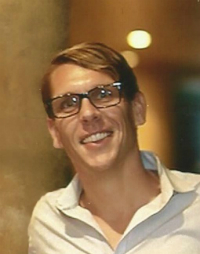
Josh Fisher received his PhD in Conflict Analysis and Resolution from George Mason University, where he studied the ecological drivers of armed conflict. His work coupled geospatial statistics, remote sensing, and econometric modeling to develop spatially explicit forecast models of the likelihood of armed conflict. He received his MS from Utah State University in Political Science and his BS in International Law and Envi [ ... ]
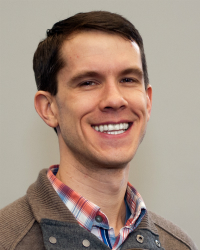
Nick Redding is Program Coordinator of the Dynamical Systems and Conflict research projects with the Advanced Consortium on Cooperation, Conflict and Complexity (AC4) at the Earth Institute, Columbia University. He is also in the final phases of completing his doctorate in Social-Organizational Psychology at Teachers College, Columbia University. Currently, he is researching leadership complexity in complex confli [ ... ]